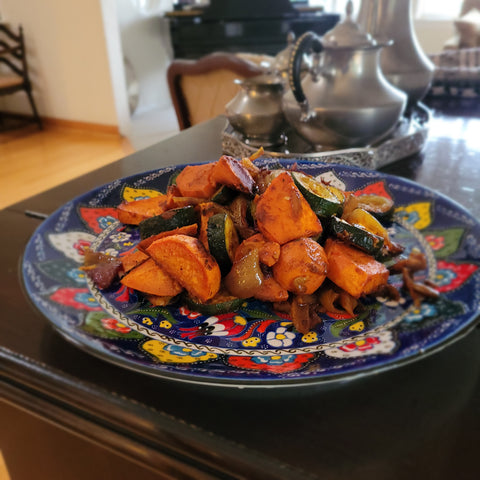Three spring holidays all share a very common theme.
- Easter
- Passover
- Nowruz (Persian New Year)
The first is the timing, or the date of the three holidays.
The three holidays all are spring holidays.
Novruz (or Nowruz) tends to fall around March 20th. It is usually set between 19th and 21st of March and aligns with the astronomical beginning of spring.
Easter and Passover also are spring holidays which also occur around the equinox. This is when the sun crosses over the line of the equator, and since it travels north, it marks the beginning of spring. Of course, the dates of the Hebrew calendar take a part in the planning also, but more or less this is the pattern of planning.
Cleaning and new clothes
Interestingly enough, all three holidays emphasize the custom of cleaning your home, thus the term "spring cleaning." It's such a popular ritual that you'll notice television commercials around this time of the year popping up more and more with cleaning products. And of course, there is the custom of buying new clothes.
Both cleaning and new clothing help to renew the home as well as yourself.
The holiday is spent with family
What is a holiday if not celebrated with people dear to your heart.
Like with all holidays, the most significant customs are spending time with family and preparing traditional dishes. It is a time to visit the houses in the neighborhood, see family, and exchange gifts.
Traditional foods, of course they vary from family to family, but overall there are certain foods that we associate with the holiday.

Matzah for Passover, which is unleavened bread
Ham or lamb for Easter
Haft-Sin for Nowruz which are seven components that start with the consonant S in the Persian language, all with themes and meanings to stand for prosperity, health, wealth, growth or togetherness.
- Sabzeh (the plate of green wheat)
- Senjed (Sea- buckthorn)
- Samanoo
- Sekkeh (coin)
- Sib (apple)
- Sir (garlic)
- Serkeh (vinegar)
On Passover herbs are also eaten, called maror and karpas. During Nouruz, Persians eat spring vegetables and rice with green herbs and fava beans, a seasonal legume which crops up during this time. Of course the lamb, the spring lamb, a symbol of Jesus, is a common food served during these holidays as well. Roasted leg of lamb or lamb shanks are common passover and Easter dishes. The Paschal lamb, as it is often referred as.
However, the most common food seen between all three is the egg.
At the table for Nowruz boiled eggs are painted and then added to the table as a decoration. Passover has an egg on the seder plate, and Easter, of course has colored eggs as a strong and important holiday symbol.
Eggs symbolize birth, fertility and new beginnings.
- Christianity the resurrection or rebirth of christ
- Judaism, the beginning of something ie: the Jews freedom from slavery allowed them to begin again and begin the process of starting together as free people,
- Nowruz the painted eggs symbolize fertility and are seen on the ceremonial haftseen table.
These holidays are all a symbol for renewal, life, and health.
A little about Nowruz:
Nowruz is a Persian holiday that marks the end of the old year and beginning of spring while also symbolizing renewal and rebirth.
Among many countries that celebrate Nowruz alongside Iran, are Azerbaijan, Turkmenistan, Afghanistan, Pakistan, India, Bangladesh, Bhutan, Nepal, Tibet, Tatarstan, China, Uzbekistan, Turkey, Iraq and Sudan. Some of the formalities and customs may differ in these countries but the initial ones are basically the same-- a shared mindset of new beginnings, opportunities and hope.
Easter:
The springtime celebration of Easter is a Christian tradition marking the day Jesus Christ is said to have come back to life. The day is a celebration of Christianity, but it’s also a celebration of new beginnings and the changing seasons.
Passover:
The Jewish holiday is the celebration of the Jews freedom from slavery from Egypt. It was when Moses led the Hebrew people to the promised land. It is also a holiday of new beginnings, change, and hope.
Whether you celebrate Nowruz, Passover or Easter each holiday focuses on a meal. Togetherness, celebrating with loved ones, family and friends, but also remembering the past and looking forward to a new future.

